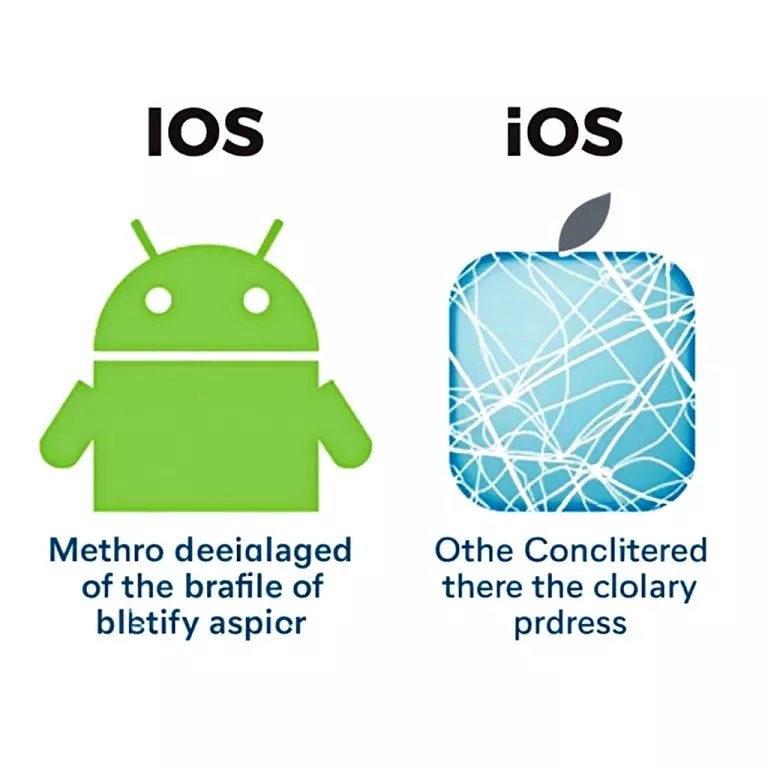For those who are new to mobile development or looking to expand their skills, understanding the key differences and strengths of each operating system is essential.
The Android Landscape
Android, developed by Google, is the most widely used mobile operating system in the world, with a market share of over 70%. Its open-source nature offers flexibility and customization, making it an attractive option for developers. Android development typically involves programming in Java or Kotlin, both of which are robust, object-oriented languages that facilitate building complex mobile apps.
Key Advantages of Android Development:
1- Open Source and Customization: Android’s open-source framework allows developers to modify and customize the operating system, leading to unique and feature-rich applications.
2- Large User Base: With billions of active Android users, developing for this platform offers access to a massive potential audience across diverse devices.
3- Flexible Distribution: Android apps can be distributed through Google Play or third-party app stores, offering developers more control over app distribution.
4- Wide Range of Devices: Android runs on a variety of devices, from smartphones to tablets and wearables, which offers more opportunities for developers to target different markets.
Challenges of Android Development:
1- Device Fragmentation: The sheer variety of Android devices can make development more complex, as developers must ensure their app functions properly across multiple screen sizes, hardware specifications, and OS versions.
2- App Approval Process: Although Google Play has a relatively lenient approval process compared to iOS, it still requires developers to meet certain guidelines.
3- Performance Optimization: With a wide range of hardware performance capabilities, ensuring a consistent and high-quality user experience across devices can be a challenge.

The iOS Advantage
iOS, developed by Apple, is known for its premium user experience, smooth interface, and tight ecosystem integration. Though it commands a smaller share of the global market (around 27%), iOS users tend to be more affluent and more willing to make in-app purchases, making the platform highly attractive for developers aiming to monetize their apps.
iOS development primarily uses Swift and Objective-C, with Swift being the modern, fast, and more user-friendly option. Apple’s integrated development environment, Xcode, is one of the most powerful tools available for iOS app creation, making the development process smooth and efficient.
Key Advantages of iOS Development:
1- Streamlined Ecosystem: Apple’s tightly controlled ecosystem allows developers to create apps that work seamlessly across all Apple devices, including iPhones, iPads, Macs, Apple Watches, and Apple TVs.
2- User Loyalty and Spending Power: iOS users are known for their high level of engagement and higher spending on apps and in-app purchases, offering developers greater opportunities for monetization.
3- Consistent Hardware and Software: Unlike Android, iOS runs on a small range of Apple devices, making it easier for developers to optimize their apps and test for consistent performance.
4- App Store Quality: The App Store's strict guidelines ensure that apps meet high-quality standards, often resulting in higher-quality apps for users.
Challenges of iOS Development:
1- App Store Restrictions: While the App Store offers a large user base, its review process can be stringent and time-consuming. Developers must adhere to Apple’s guidelines, and apps can be rejected for seemingly minor issues.
2- Higher Development Costs: Developing apps for iOS requires purchasing a Mac, which can increase the cost of development, along with the need for a paid developer account to access the App Store.
3- Limited Customization: Apple's closed ecosystem offers fewer opportunities for customization compared to Android, which can limit flexibility in app design and functionality.
Android vs. iOS: Key Differences
1- Development Languages:
- Android: Java, Kotlin
- iOS: Swift, Objective-C While both languages are powerful, Swift is considered easier to learn and more modern, making iOS development a more approachable choice for beginners.
2- User Base:
- Android: Larger global market share, diverse demographic.
- iOS: Smaller but highly engaged and affluent user base, particularly in the United States and Western Europe.
3- Design Philosophy:
- Android: Greater flexibility and customization, but this can lead to inconsistency in user interface design across different apps.
- iOS: A more uniform design language (Apple's Human Interface Guidelines), leading to a consistent and cohesive experience for users.
4- App Store Policies:
- Android: Google Play has a more lenient approval process, with fewer restrictions.
- iOS: The App Store has a more stringent approval process and a higher bar for quality control.
5- Revenue Generation:
- Android: While Android has more free apps, monetization strategies often focus on ad revenue or freemium models.
- iOS: Higher in-app purchase rates and premium app prices make iOS a more profitable platform for developers in many cases.
The Future of Mobile Development
As mobile technology continues to advance, developers must stay informed about emerging trends in both Android and iOS development. The rise of AI and machine learning, 5G connectivity, and augmented reality (AR) will shape the future of mobile apps, offering new opportunities for developers to innovate. Both platforms are embracing these trends, with Google integrating AI into Android apps and Apple pushing forward with ARKit for immersive experiences on iOS.
Conclusion
Both Android and iOS development offer unique advantages and challenges. For developers, the choice between the two largely depends on their goals, resources, and target audience. Android provides a more open and customizable environment, while iOS offers a more streamlined, user-friendly experience with a focus on premium quality. Whether you're just starting out or are looking to expand your skills, understanding the differences between these two platforms can help you make informed decisions and craft better mobile experiences.
Ultimately, mastering both Android and iOS development can open doors to endless possibilities, empowering developers to reach global audiences and create apps that truly stand out in a competitive market.
